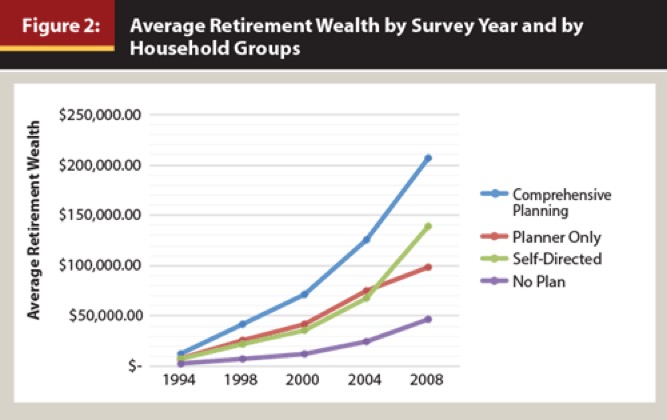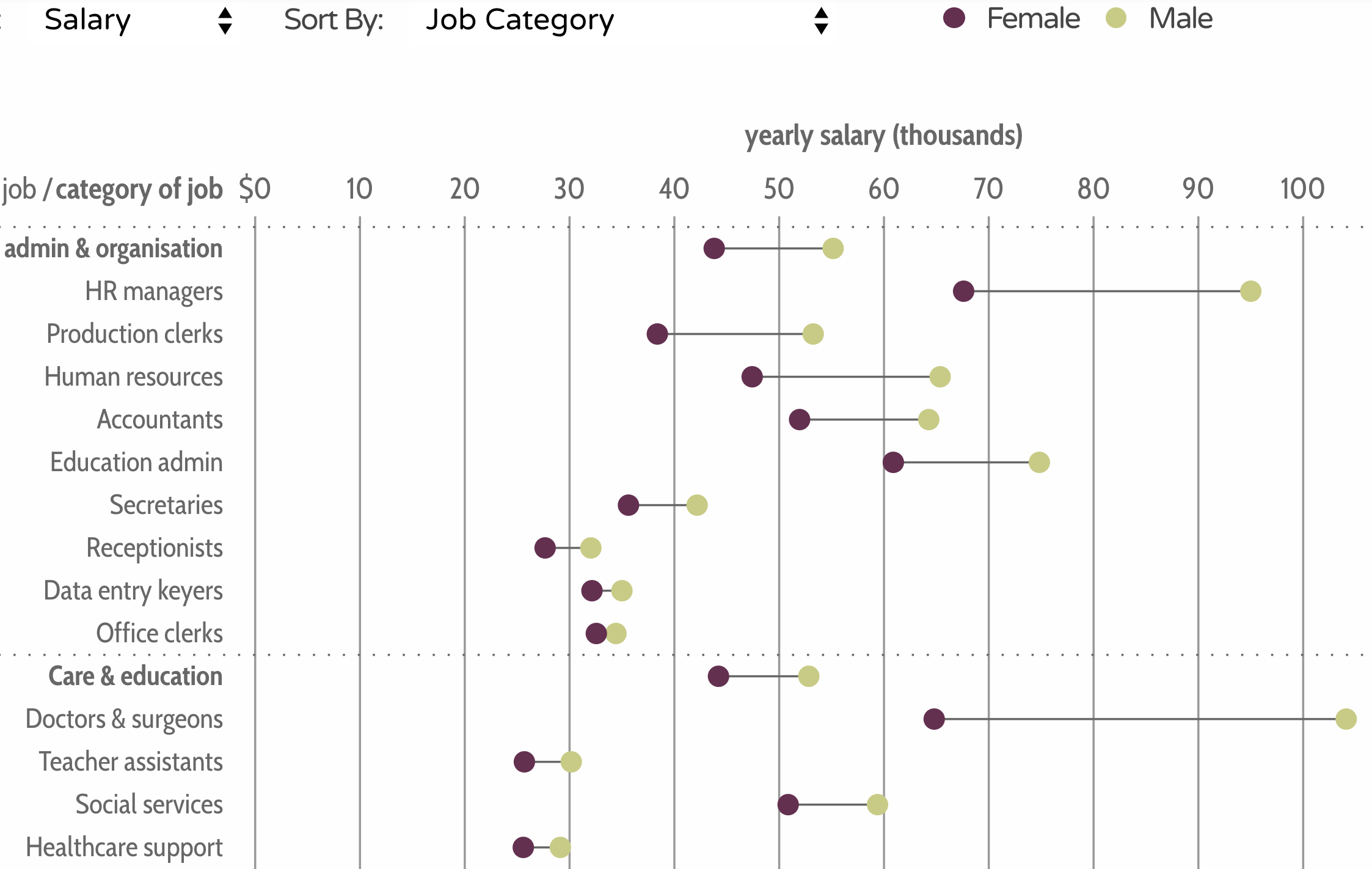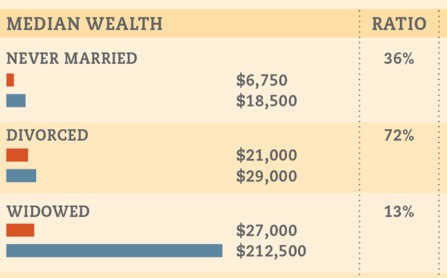
Let’s March to Close the Women’s Wealth Gap
I grew up with five older sisters. I learned many things from them: creative summer games, empathy, math tricks, and how to be economical. I have high regard for all of them, and I am convinced that they can do what any other man or woman can do. So it stings to know that my sisters belong to the aggrieved party.
Gender Pay Gap
We all know about the pervasive salary differences between men and women across the country (and the world) and in various professions. Below is a visual representation of this in the United States.
The gap is particularly pronounced among doctors, legal occupations, chief executives, and—yes – financial advisors. The average salary of a male advisor is $85,000, while that of a female advisor is only $52,000, despite equivalent skills and responsibilities.
If you feel indignant about the gender pay gap, wait until you hear about the gender wealth gap.
Women’s wealth gap is far greater than income gap
The wealth gap between women and men is less known, but is much more significant. In her 2012 book, former Harvard professor Mariko Chang reveals to us the extent of this wealth gap.
The typical woman only owns 36 cents for every dollar of wealth owned by the typical man.
Furthermore, widowed women only have 13% of the wealth of their men counterparts.
*Red represents women’s median wealth; blue for men.
For those with college degrees, women only have 60% of the wealth of their men counterparts. Among those with graduate degrees, women only have about half of what men have in wealth.
Chang argues that the women’s wealth gap can be attributed to differences in earnings, in saving and investing, and the demands of care-giving.
We need more women in positions of power who can shape policies to alter the disparities in earnings and care-giving responsibilities.
In the meantime, a highly-trained financial planner can help improve women’s saving and investing strategies.
Can comprehensive financial planning help address the women’s wealth gap?
Numerous non-profit studies show that a comprehensive financial plan can increase your income, reduce debt, and help you achieve a life goal.
One study that was published in the Journal of Financial Planning showed that those who had a comprehensive financial plan in place were able to build up to 4 times more wealth than those doing it on their own (Martin and Finke, 2014).
Close to three-quarters of District Capital’s clients are women. As our firm helps them take control over their finances and build their wealth, I’m hoping it will serve as our contribution to bridging the women’s wealth gap.






Engage us on Facebook
Follow us on Twitter
Tweets by @mymcmedia